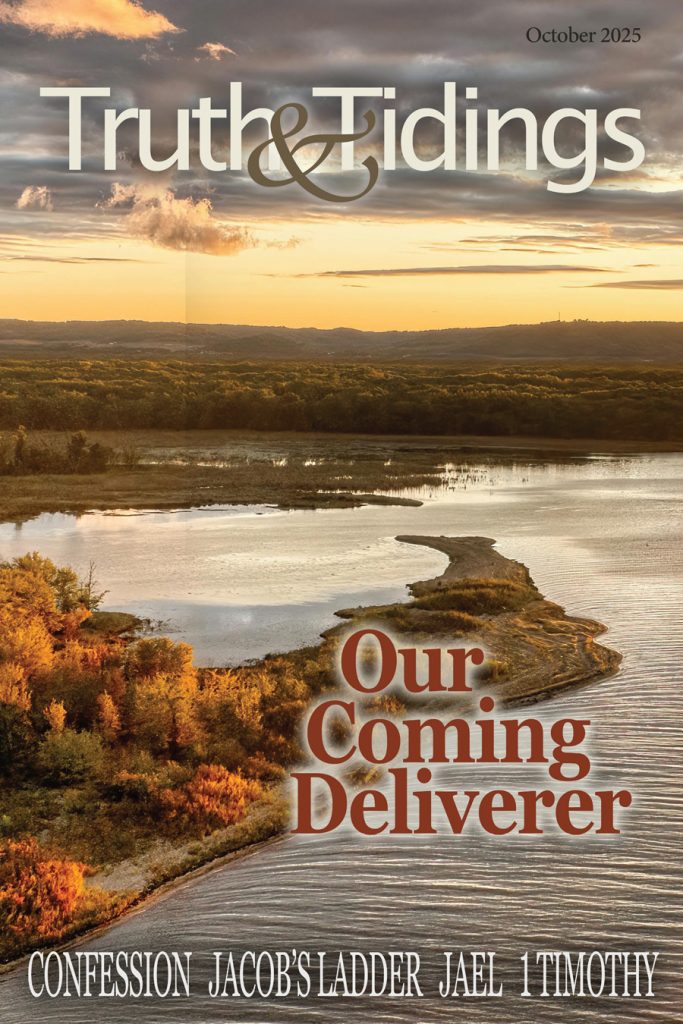(Outlines from Romans to Hebrews by A.J. Higgins can be found on truthandtidings.com, published from 2012-2015)
Origin
Written by the apostle Paul, probably after release from his first imprisonment. May have been written from Macedonia. Written to the assembly at Ephesus. Trace the wealth of insight we have into Ephesus from Acts through Revelation 2.
Paul’s epistles can be divided into three groups:
- Preaching Epistles: Romans, Corinthians, Galatians, Thessalonians
- Prison Epistles: Ephesians, Philippians, Colossians, Philemon
- Pastoral Epistles: Timothy and Titus (The reason for their being so called is not that Timothy and Titus were pastors in the modern sense of the word, but that the epistles contain much instruction for local church activity and for the care of local assemblies.)
The Church at Ephesus
Its Planting (Acts)
Its Protection (the elders in Acts 20)
Its Progress (Ephesians letter)
Its Pastoring (1 Timothy)
Its Peril (2 Timothy)
Its Problem (Revelation 2)
Occasion
This epistle deals with godly order. Its theme is “how one ought to behave in the house of God” (3:15). There were things which needed to be rectified in the assembly at Ephesus, and Paul is giving Timothy both the authority to deal with the problems and the instruction on how to deal with problems.
The House of God – A look at the Lord’s cleansing of the Temple gives principles which are the backbone of 1 Timothy:
John: Make not My Father’s house (2:16) a house of merchandise – 1 Timothy 6
John: The zeal of thine house hath eaten me up (2:17) – 1 Timothy 1 and 4
Matthew: My house shall be called a house of prayer (21:13) – 1 Timothy 2
Luke: He taught daily in the Temple (19:47) – 1 Timothy 4
Mark: House of prayer … for all nations (11:17) – 1 Timothy 2:1
Objective
To Charge concerning false teachers: “Law Teachers” – Jewish fables and genealogies. These were not law teachers as in Galatians, but different. Also, there is a suggestion in chapter 6 that there were those who were in it for money. These Judaizers also had some taint of being ascetics (ch.4) and boasted of a superior knowledge (6:20), possibly spiritualizing the resurrection and other truths (2Ti 2:18).
To Clarify concerning the assembly pattern: In Titus, there is the setting in order of things wanting. In 1 Timothy, there is instruction concerning prayer, sisters, elders and deacons, ministry, support of the widows, and others. All this is embraced in 3:14-16.
To Confirm Timothy’s authority: The apostolic charge and the words of 4:12 would, when read publicly to the assembly, reinforce Timothy’s position. The reminder to Timothy that there were prophecies (1:18) which singled him out for this work would encourage him personally.
The theme of the epistle is without question contained in 3:15 (how one ought to behave in the House of God). This is emphasized at the very outset (1:4) – godly edifying, or the thought of a stewardship in the house, administering for God.
Organization of the Epistle
The Charge to Maintain the House (ch.1)
The Conduct Which Will Mark the House (ch.2)
The Character of Men and Ministers Within the House (ch.3)
The Challenges Mounted Against the House (ch.4)
The Care Manifested Towards the House (ch.5)
The Caution Regarding Materialism in the House (ch.6)
or
Instructions Which Further the House (ch.1)
Intercession – the Fragrance of the House (ch.2)
Individuals Who Function in the House (ch.3)
Imperative for Fruitfulness in the House (ch.4)
Importance of Fairness in the House (ch.5)
Incentives for Faithfulness in the House (ch.6)
or
Good Soldiers and Bad Sailors (ch.1)
Priestly Men and Polished Stones (ch.2)
Good Works and Good Degrees (ch.3)
Seducing Spirits and Exemplary Servants (ch.4)
Widows Who Are Wanting and Elders Who Are Worthy (ch.5)
Man of Greed and the Man of God (ch.6)
Christ in Each Chapter
The Means of Salvation (1:15)
The Mediator (2:5)
The Manifestation of God (3:16)
The Master of the House (4:6)
The Motivation for the House (5:21)
The Monarch (6:15)
Occurrence of Words and Phrases
Some (1:3,6,19; 4:1; 5:15; 6:10,21)
God our Savior (1:1; 2:3; 4:10)
Godliness or piety (2:2; 3:16; 4:7,8; 6:3,5,6,11)
Teach or doctrine (1:3,7; 2:7,12; 3:2; 4:11,13,16; 5:17; 6:2,3)
Faith (1:4,5,14,19; 2:7,15; 3:9,13; 4:1,6,12; 5:8,12; 6:10,11,12,21)
Conscience (1:5,19; 3:9; 4:2; 2Ti 1:3; Titus 1:15)
Thought of testimony to the world (2:1,2; 3:7,10; 4:12; 5:8,10,14; 6:1)
Command or charge (1:1,3,5,18; 4:11; 5:7; 6:13,17)
Savior (10x in Pastorals)

